Each time some new revelation about the Bush Administration’s response to 9/11 comes out, I find myself looking at the dates. I’m always amazed at how early they are – all from a short period, right after the attack. What we saw was "homeland security" – particularly in airports. What we heard was tough guy talk – "dead or alive" "bring ’em on" "axis of evil." What we’re learning went on behind the scenes was the mobilization of clandestine forces – wiretapping, data-mining, secret prisons and torture, kidnappings, maybe hit squads, and war. Something big needed to be done, and it needed to be done fast.
It’s easy to criticize things in the past that didn’t work. Knowing that something failed validates the criticism in advance. And people who are failing, or who have failed, fall into a trap themselves. They continue to justify their plan, even when it’s clear it didn’t work out. They often keep pushing a failing enterprise, trying to pull it out of the fire eg "the Surge." Worse, they try to say "it worked" when it’s obvious it didn’t. So, we have self righteous critics, "I told you it wouldn’t work." And we have rationalizing defenders, "It did work. See, there have been no further attacks." And sometimes, they claim that what looks like failure is really a new problem, "How could we have predicted the insurgency?"
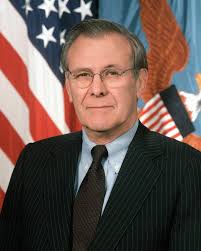
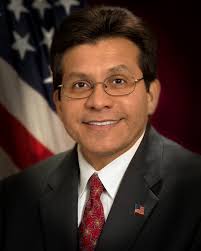
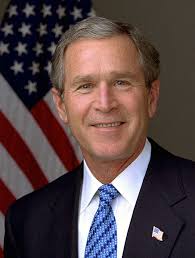

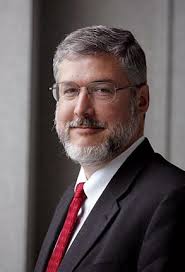

So, when we look back at the Bush Administration, we have to be careful not to punish failure. That’s the part that would be dangerous for our future. Our leadersa have the same right to fail as the rest of us. In fact, the right to fail is a bedrock American Principle. It’s called bankruptcy. We don’t throw you in debtor’s prison here. They tried that in England, and ended up colonizing the New World with their debtors. We just take you out of the game until you prove you’ve learned how to play.
When we review what our last Administration did, we have to evaluate each piece of it with this question, "What if it had worked?" For example, if in the course of torturing Abu Zubaydah. he had said, "Osama bin Laden lives at 3254 Maple Street in Islamabad, Pakistan", and we’d sent a kidnapping squad there that picked bin Laden up and flown him to Thailand where he was tortured and told us where all the al Qaeda cells were in the world – would we then be so down on torture? Or what if we’d data-mined all the phone calls in Georgia for the phrase "Savannah River Plant," and figured out there was an al Qaeda plan to attack it and steal plutonium, and we stopped the plot, would we be so down on data-mining? Or if Rumsfeld had listened to the military and sent 400,000 troops to Iraq, secured its borders early, and they had formed a Democratic Government that sold us oil cheap, would we be so down on the Iraq War?
I’ve been impressed that the Obama Administration as a whole appears to be sensitive to these points. They seem to feel that they need to start where we are and move ahead. A lot of us feel otherwise. But are we simply punishing failure? or being partisan? In some instances, the answer is a clear "Yes." But that’s not the whole story. It seems to me that there is one thing that we have every right to focus on – one thing that needs to be fixed. And it lead to a second thing that was even worse.






The one thing was the Bush Administration’s contempt for oversight. They made their plans in secret, put them into action in secret, and only told us things that moved us towards their conclusions. They evaded judicial oversight, congressional oversight, and oversight by the people at large. I believe that I would criticize that even if they had succeeded. In fact, I’m sure of it. The second thing came from this evasion of oversight – they didn’t change course based on the field conditions. They kept going with plans even when it was clear they were failing, or it became apparent that they were bad ideas. They fought to continue plans made in the desperate days of 9/11, unobserved, for now almost eight years.
It was perfectly reasonable to suspect Saddam Hussein had something to do with 9/11. But as they pushed that hypothesis, it became patently obvious that wasn’t true – but they kept on. They interrogated Abu Zubaydah successfully, but when they didn’t learn all they wanted to learn, they tortured him unmercifully [with no results]. Either what they wanted him to say wasn’t true ,or what they wanted to know wasn’t something he knew. Oversight is important in the planning phase of things, but it’s also important when things are put into action. They avoided oversight "period." Our Constitutional Democracy was built on oversight. In many ways, it’s a brilliant system. The Founders seemed to know how human nature and power can interact and go amiss. So they built in Checks and Balances to head off the kind of things that can happen – in this case, did happen.
Oversight, Checks and Balances, things like that can be a huge pain in the ass. I personally hate committees, boards, task forces, situations where decisions are made by many. I prefer being given a job, thinking it through, and doing it. I don’t want advice unless I get stuck and ask for it [So I wouldn’t vote for me for President]. Group decisions are a lot harder. That’s why we have an "Executive" – someone who can get things accomplished ["execute" things]. We even recognize that in emergencies, we need to suspend the group-think because we need action. So we have war-time exceptions to get the job done.






The Bush Administration abused war-time powers, they abused "classification," and they lied – all in the service of avoiding oversight. They predictably failed as a result. But it’s not their failure that needs to be addressed. It’s how they assured failure by perverting legitimate powers. So, in spite of the Obama Administration’s wish to move ahead, many of us feel that Bush and Cheney put holes in the dyke that threaten its integrity and have to be repaired. Fortunately, Eric Holder, having read the reports on his desk, is coming our way. This was a glaring assault on our Constitution – a fatal blow if not rectified. In each instance, we need to ask, "Did they avoid oversight?" "What power did they use to avoid it?" "Was that a legitimate use of the power?" We don’t need revenge. We need revival…
 The purpose of airing out practices that are already known to have taken place is obvious. The Bush Administration made a mockery of our entire system by exploiting loopholes and manipulating government to do it their way, not our way. We don’t elect people to play by their rules, we’ve got rules of our own. They broke our Laws, betrayed our trust, told us lies. They took control and abused their power and it was a disaster. They claimed they were the Law. They weren’t, and we need to tell them, their supporters, and future leaders that we are a government "of the people," "by the people," and "for the people." Our reason for airing out practices that are already known to have taken place is the same reason we charge criminals. If the criminals claims mitigating circumstances, we evaluate those considerations in sentencing.
The purpose of airing out practices that are already known to have taken place is obvious. The Bush Administration made a mockery of our entire system by exploiting loopholes and manipulating government to do it their way, not our way. We don’t elect people to play by their rules, we’ve got rules of our own. They broke our Laws, betrayed our trust, told us lies. They took control and abused their power and it was a disaster. They claimed they were the Law. They weren’t, and we need to tell them, their supporters, and future leaders that we are a government "of the people," "by the people," and "for the people." Our reason for airing out practices that are already known to have taken place is the same reason we charge criminals. If the criminals claims mitigating circumstances, we evaluate those considerations in sentencing. 


 That’s my thought too. Panetta wouldn’t have been stirred so deeply by any of this. Congress wouldn’t have been so bent out of shape by it either. What I think we know at this point is that the C.I.A. had a hit squad program, that isn’t fully operational that went around any number of Laws. Either it had to do with Iran, not Iraq, or it is a C.I.A. Operation that should be under the Military’s control, or it was something else. My guess is that its some fancy techn-gizmo for assassinating people. Maybe they’re finding ways for bombs/drones to locate and hone in on cell phones.
That’s my thought too. Panetta wouldn’t have been stirred so deeply by any of this. Congress wouldn’t have been so bent out of shape by it either. What I think we know at this point is that the C.I.A. had a hit squad program, that isn’t fully operational that went around any number of Laws. Either it had to do with Iran, not Iraq, or it is a C.I.A. Operation that should be under the Military’s control, or it was something else. My guess is that its some fancy techn-gizmo for assassinating people. Maybe they’re finding ways for bombs/drones to locate and hone in on cell phones.





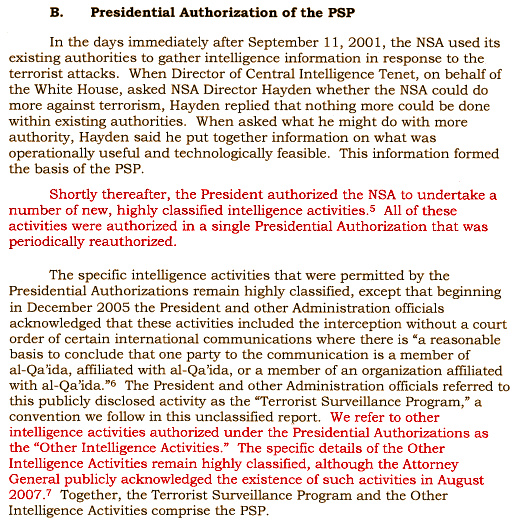
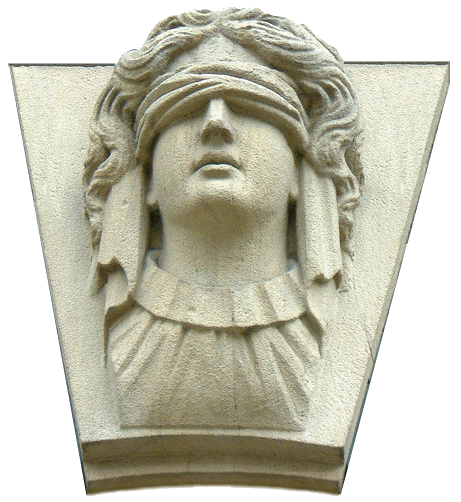
 The C.I.A. Leak case only resulted in a commuted sentence for a lackey – Scooter Libby – but it exposed a lot of the story to people who don’t keep up with such things. It took the vague preoccupations of bloggers into front page newspaper articles and political speeches where it belonged. We finally began to hear people saying things like "… lied to take us to war."
The C.I.A. Leak case only resulted in a commuted sentence for a lackey – Scooter Libby – but it exposed a lot of the story to people who don’t keep up with such things. It took the vague preoccupations of bloggers into front page newspaper articles and political speeches where it belonged. We finally began to hear people saying things like "… lied to take us to war." 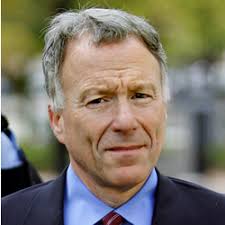 And the trial itself gave us the first taste of the now ubiquitous "live blogging" of such events – catapulting the bloggers into the "real" media. The Law didn’t give us everything we wanted because the Law required proof that the parties under suspicion knew that Valerie Plame was a covert agent [it may be true that they didn’t]. But the trial made it clear who did what and why. Patrick Fitzgerald said "there’s a cloud over the Vice Presidency" – and that cloud has never lifted. It’s hard to realize that the Libby Trial ended only a little over two years ago, and look at where we are now.
And the trial itself gave us the first taste of the now ubiquitous "live blogging" of such events – catapulting the bloggers into the "real" media. The Law didn’t give us everything we wanted because the Law required proof that the parties under suspicion knew that Valerie Plame was a covert agent [it may be true that they didn’t]. But the trial made it clear who did what and why. Patrick Fitzgerald said "there’s a cloud over the Vice Presidency" – and that cloud has never lifted. It’s hard to realize that the Libby Trial ended only a little over two years ago, and look at where we are now.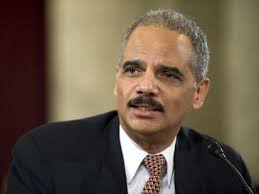 It’s easy to sit out here and say "get them!" It’s much harder to frame "get who?" for "doing what?" because it’s against "which law?" As little as I know about the Law itself, I do have an opinion. I would want Holder to appoint a Special Prosecutor with very broad powers, like Fitzgerald had. The Bush White House twisted and bent so much, and I’ll bet we don’t know the half of it. I don’t care about punishing the involved parties, but I do care about not exonerating them. So I would like to see any trials be like the Libby Trial, f
It’s easy to sit out here and say "get them!" It’s much harder to frame "get who?" for "doing what?" because it’s against "which law?" As little as I know about the Law itself, I do have an opinion. I would want Holder to appoint a Special Prosecutor with very broad powers, like Fitzgerald had. The Bush White House twisted and bent so much, and I’ll bet we don’t know the half of it. I don’t care about punishing the involved parties, but I do care about not exonerating them. So I would like to see any trials be like the Libby Trial, f ocused on people who definitely broke the law in ways that can be proved. But I would also like to see broad enough charges to expose the breadth of their deceit. It’s a tall order for Eric Holder because success depends on his initial appointment. We owe Jim Comey a debt of eternal gratitude for appointing Patrick Fitzgerald and giving him the tools for a complete investigation. Let us just hope that Eric Holder can follow Comey’s lead…
ocused on people who definitely broke the law in ways that can be proved. But I would also like to see broad enough charges to expose the breadth of their deceit. It’s a tall order for Eric Holder because success depends on his initial appointment. We owe Jim Comey a debt of eternal gratitude for appointing Patrick Fitzgerald and giving him the tools for a complete investigation. Let us just hope that Eric Holder can follow Comey’s lead… Things are getting confusing. There are the "Other Intelligence Activities" of the NSA-PSP-OIG Report. And there’s the whatever-secret-thing-the-CIA-was-doing that C.I.A. Chief Panetta raced to brief Congress about. Then there’s the "hit-squad reporting to Cheney" that Seymour Hersh alluded to in his talk several months ago in Minnesota. And Dick Cheney’s name [with sidekick David Addington] seems linked to all of them. Oh yeah, there was Torture too – and recall, we are still waiting for the release of the 2004 C.I.A. OIG Report. While these all may be separate things involving multiple agencies, it is more likely that they all go under the heading of "The Dark Side" of our War on Terror [slash War of Terror]. And it looks as though we’re about to get another jolt with Mr. former VP riding the chariot once again.
Things are getting confusing. There are the "Other Intelligence Activities" of the NSA-PSP-OIG Report. And there’s the whatever-secret-thing-the-CIA-was-doing that C.I.A. Chief Panetta raced to brief Congress about. Then there’s the "hit-squad reporting to Cheney" that Seymour Hersh alluded to in his talk several months ago in Minnesota. And Dick Cheney’s name [with sidekick David Addington] seems linked to all of them. Oh yeah, there was Torture too – and recall, we are still waiting for the release of the 2004 C.I.A. OIG Report. While these all may be separate things involving multiple agencies, it is more likely that they all go under the heading of "The Dark Side" of our War on Terror [slash War of Terror]. And it looks as though we’re about to get another jolt with Mr. former VP riding the chariot once again. …The report says too few relevant officials knew of the size and depth of the program, let alone signed off on it. They particularly criticize John Yoo, a deputy assistant attorney general who wrote legal memos undergirding the policy. His boss, Attorney General John Ashcroft, was not aware until March 2004 of the exact nature of the intelligence operations beyond wiretapping that he had been approving for the previous two and a half years, the report says.
…The report says too few relevant officials knew of the size and depth of the program, let alone signed off on it. They particularly criticize John Yoo, a deputy assistant attorney general who wrote legal memos undergirding the policy. His boss, Attorney General John Ashcroft, was not aware until March 2004 of the exact nature of the intelligence operations beyond wiretapping that he had been approving for the previous two and a half years, the report says. 
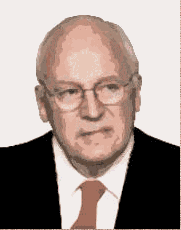 "critically important" "thousands of lives" Where did that statement come from? Later in the report, each of the Intelligence Agencies has a section where they discuss the efficacy of the PSP [President’s Surveillance Program]. None of them found convincing evidence that the program was effective. But more than that, none of them reported on any survey of the effectiveness of program that came before the meeting under discussion here. There was no information about efficacy when Dick Cheney was speaking to Jim Comey and Jack Goldsmith.
"critically important" "thousands of lives" Where did that statement come from? Later in the report, each of the Intelligence Agencies has a section where they discuss the efficacy of the PSP [President’s Surveillance Program]. None of them found convincing evidence that the program was effective. But more than that, none of them reported on any survey of the effectiveness of program that came before the meeting under discussion here. There was no information about efficacy when Dick Cheney was speaking to Jim Comey and Jack Goldsmith. 